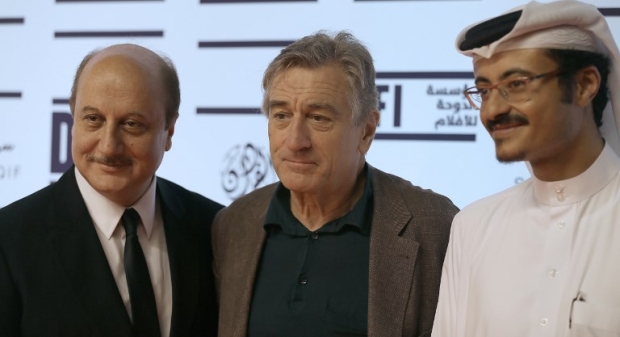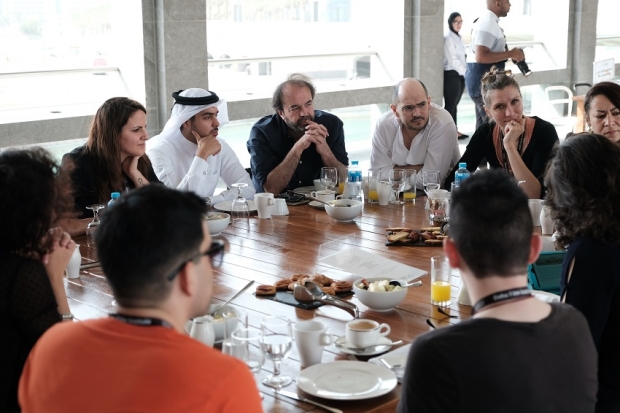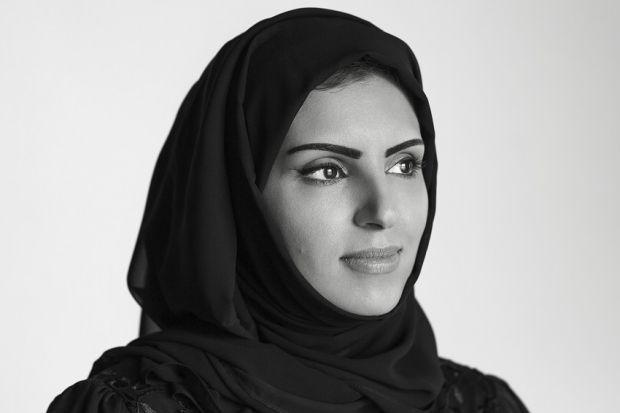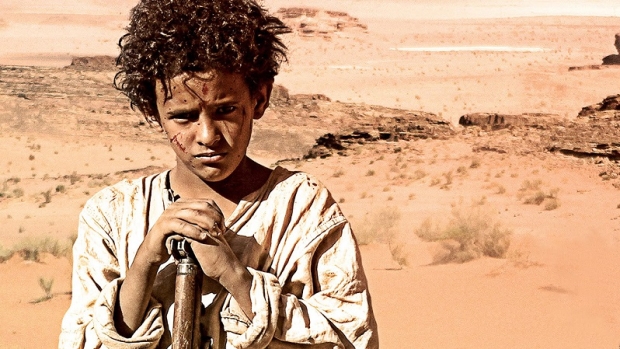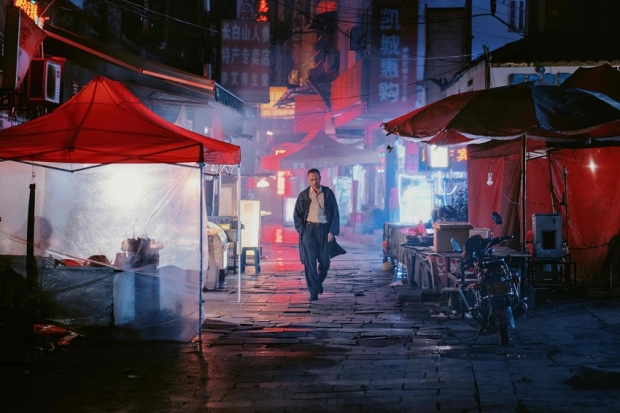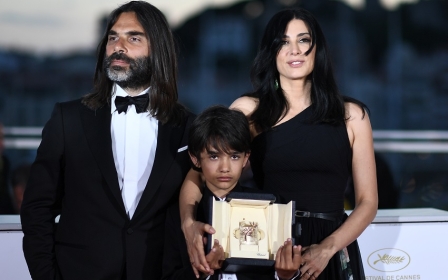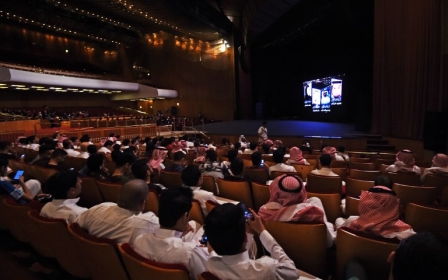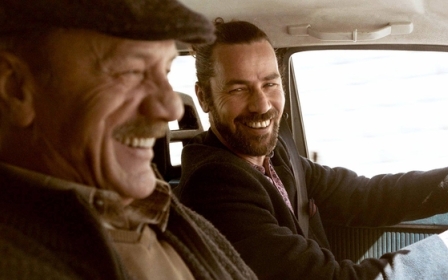Lights, camera: The Doha Film Institute's reinvention of Arab cinema
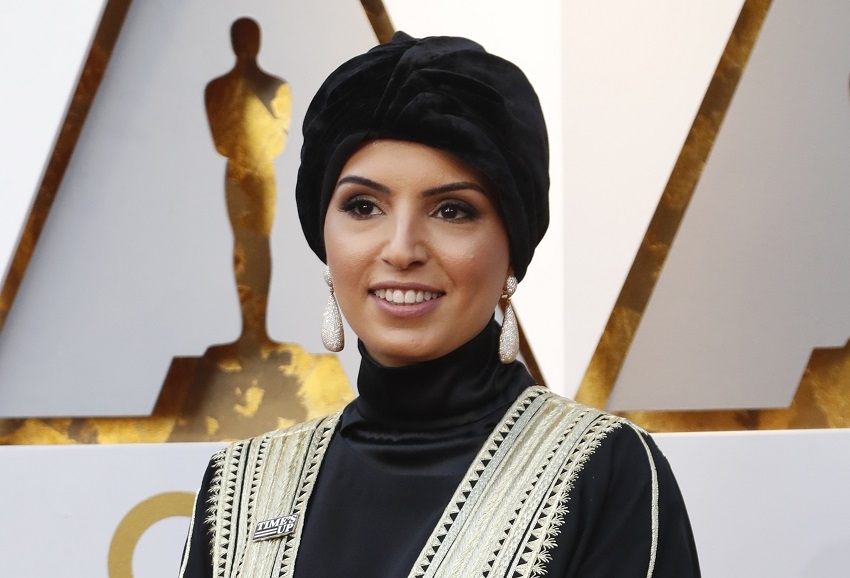
CANNES - The Doha Film Institute (DFI) started out as an unsophisticated newbie in the MENA region, struggling to find its identity and a distinctive place in the Arab film ecosystem. Nine years on, it has single-handedly transformed Qatar's film scene and the projects it supports have won some of the highest international accolades.
The DFI has become one of the most bona fide institutions in the region, not only providing funds for emerging and established filmmakers alike, but acting as a platform for linking together Arab filmmakers with some of the biggest players on the scene.
The DFI was born out of Qatar’s first cinematic fair, the Doha Tribeca Film Festival (DTFF). Launched in 2009 through a partnership with American Tribeca Enterprises, DTFF made headlines for all of the wrong reasons: first-class flights transporting dozens of guests from across the world, lavish gifts received by the guests who had their schedules pre-programmed on an iPod Touch, and marquee stars such as Robert De Niro, Martin Scorsese and Adel Imam gracing the festival’s nascent red carpet.
Stay informed with MEE's newsletters
Sign up to get the latest alerts, insights and analysis, starting with Turkey Unpacked
DFI was born out of the need to support Qatari and Arab talents to realise their visions
– Fatma al-Remaihi, DFI CEO
Initially, Doha failed to be taken seriously by the global film industry. As Dubai positioned itself as the mecca for Arab film discoveries, Doha was seen as the rich, spoilt cousin: all blitz and no substance. When it came to its film selection, it had no curatorial vision and was merely a mixture of best-of-year movies.
Organisers took notice, and soon the glamour was scaled down and substituted with grants and networking initiatives for Arab filmmakers. DFI was founded in 2010 by Sheikha al-Mayassa al-Thani, sister to the current emir of Qatar. From the get-go, the choice of films DFI supported was adventurous, and unlike Dubai and Abu Dhabi, their grants did not include a clause forcing recipients to have their regional premiere at its festival. Several Doha-supported films premiered in Dubai and Abu Dhabi.
In 2013, DTFF was cancelled and replaced by the Ajyal Youth Film Festival and the industry platform, the Qumra initiative, featuring master classes, public screenings and panel discussions. Qumra, in particular, was a great success, pairing projects with filmmakers from across the globe with international industry professionals such as programmers, distributors, and producers.
Master classes from some of the world’s most acclaimed filmmakers were held in tandem featuring Oscar-winning actress Tilda Swinton, Cannes winning filmmaker Apichatpong Weerasethakul, and Venice winning filmmaker Aleksandr Sokurov.
The birth of DFI
Widely seen as the architect behind DFI’s evolution is iconic Palestinian filmmaker, Elia Suleiman, who has worked primarily as Qumra's artistic advisor since 2013.
Our programmes helped filmmakers find their voices. They’ve become more confident with their crafts
– Fatma al-Remaihi, DFI CEO
“The transition was organic. Out of the festival, organisers saw a need for a body like the Doha Film Institute, which was founded in 2010. DFI was born out of the need to support Qatari and Arab talents to realise their visions. During the four years of DTFF, we recognised that youth, both audiences and filmmakers, are our primary target,” DFI CEO Fatma al-Remaihi told Middle East Eye.
According to Remaihi, this shift in strategy is what spawned Ajyal and Qumra, along with grants for first and second-time filmmakers.
TV content is more in demand than ever. Production values have radically improved. TV series are a very popular format in the region, a format that we can no longer neglect
– Fatma al-Remaihi, DFI CEO
“It took us years to build the DFI ecosystem and to perfect it,” she said. “The result of this lengthy process is reflected in the quality of the films we’ve chosen to support and in the educational programmes we’ve founded. Our aim now is to sustain this system.”
Grants aside, throughout the year DFI holds multiple training and developmental programmes for filmmakers across the region, including organising the Producers Lab, a six-day workshop mentoring rising talent in the region.
According to Hanaa Issa, DFI's director of strategy and development, alumni of these workshops are later supported with grants and invited to Qumra to meet up with distributors, producers, and programmers from around the globe. Additionally, they can exhibit their work in Ajyal.
We have now more responsibility to be sustainable and continue opening our doors to all filmmakers, even those whose countries have problems with Qatar. Nothing has changed from our side
– Fatma al-Remaihi, DFI CEO
Qatar is exposing Qatari filmmakers to schools of cinema they have never seen before.
“Our programmes helped filmmakers find their voices. They’ve become more confident with their crafts, with translating their ideas to screen,” Remaihi said.
“The films are travelling more now,” Issa said. “More international programmers are looking for local content than at any time before.”
Not black or white
Yet things are not entirely spotless in Doha, as with the rest of the Arab world, censorship and socio-political taboos continue to govern aspects of the institute’s work.
Even though its production arm is open to the rest of the world, DFI has never sponsored LGBT stories. Politically contentious projects, meanwhile, are approached with caution.
According to Lebanese filmmaker and Oscar nominee Ziad Doueiri (The Insult), DFI demanded its name be taken off the opening credits of his Israel-shot feature, The Attack, which is about a Palestinian doctor living in Israel in search of answers on why his wife carried out a suicide mission. DFI, as Doueiri explains, was one of the main funders of the film. DFI representatives said they do not need to include their credits on every project they back.
These misgivings aside, DFI’s track record speaks for itself with its many successes: Jordanian Oscar nominee, Theeb (2014); Tunisian Berlin winner for best actor, Hedi (2016); Palestinian Locarno contender, Wajib (2017) and Lebanese Palme d’Or short winner, Waves 98 (2015).
This year in Cannes, DFI remarkably had six projects in different sections of the festival, including Lebanese Nadine Labaki's Jury Prize winner, Capharnaum; Chinese Bi Gan's Cannes Un Certain Regard sensation, Long Day's Journey Into Night; and The Wild Pear Tree by Turkish Palme d'Or winner, Nuri Bilge Ceylan.
Small screen
DFI’s latest expansion plans, announced last month, will include branching out into TV and web production, covering TV and web fiction and creative documentary. The expansion is an acknowledgement of the changing viewing habits in the region and a push for filmmakers to tell their stories in alternative media.
A lot of filmmakers are now afraid to come to Doha, or even apply for funds from the institute
– Fatma al-Remaihi, DFI CEO
“TV content is more in demand than ever. Production values have radically improved. TV series are a very popular format in the region, a format that we can no longer neglect,” Remaihi said.
Issa added that it also gives talents more platforms to channel their creations.
“TV is going to cinema now,” said DFI’s head of grants, Khalil Benkirane. “TV producers are looking more and more for independent filmmakers with some strong visions who can bring their film sensibilities to TV."
For grants, DFI has two sessions per year. In total, the institute receives more than 400 films annually. “Each project is evaluated by three instructors. It’s a very democratic process because we assign these projects randomly,” Benkirane said.
Arab filmmakers have become independent because they’re no longer solely reliant on western funds which unlike us, impose their rules on telling stories
- Khalil Benkirane, DFI’s head of grants
“We then take a month-and-a-half to examine these evaluations and narrow down the selection to 70 projects, which we assign to an international jury comprised of five members. They take a month-and-a-half or two to give their verdict, after which 30-34 projects are chosen for the grants,” he added.
There are no specific criteria for the selection process, but Benkirane attests that the institute champions, first and foremost, projects that push the envelope in terms of form and content. Geography and relevancy also play an imperative role.
Diplomatic crisis
The expansions of DFI arrive at a perilous time for Arab cinema. In April, Dubai became the latest festival to get the axe, citing plans for a “new strategy” and stating that the event will be held every two years in a different format.
This occurred after Abu Dhabi decided to focus on other initiatives to support local filmmakers. Marrakech was also on pause, yet it was recently revived after a one-year hiatus, saying it wanted to allow the festival to be open to other cultures.
The discontinuation of these festivals and grants has left a wide gap in the region’s cinema at a time when Arab films were garnering unprecedented international attention.
In June 2017, the growth of DFI hit a stumbling block after the blockade imposed on Qatar complicated pursuing funding opportunities in the region.
The blockade put filmmakers from Saudi Arabia, the United Arab Emirates, Bahrain, and especially Egypt, in an uneasy position when dealing with or accepting funds from DFI. Making matters more challenging was a decision by some Egyptian banks to stop dealing with Qatari banks in light of the crisis.
Still, Ramaihi said the DFI has never changed their strategy in terms of funding or training, and it is still open to all filmmakers from across the region.
“It’s unfortunate what’s happening now, and we certainly cannot ignore the political situation because it is indeed affecting the film industry in many ways. A lot of filmmakers are now afraid to come to Doha, or even apply for funds from the institute,” Remaihi said.
The emergence of the luxurious Gouna Film Festival in Egypt in 2017 and the abrupt rise of Saudi Arabia as the new cinema powerhouse in the region amid Mohammad bin Salman’s reforms have placed DFI in the middle of a furtive cold war.
The discontinuation of these festivals and grants has left a wide gap in the region’s cinema at a time when Arab films were garnering unprecedented international attention
“It’s saddening for all of us, every time a fund closes down. We believe that every component of the Arab film scene complements the other, even though it may appear that we’re [in] competition with each other. You can never have too many funds. You can never have too many festivals. Even if we’re indeed competing, it’s all for the benefit of filmmakers,” Remaihi said.
“Funds have certainly played an integral role in evolution of Arab film,” Benkirane said. “I’m afraid that with the dissolution of Abu Dhabi, Dubai and the like, we may witness a decline in the number of productions from the region. Arab filmmakers have become independent because they’re no longer solely reliant on western funds which unlike us, impose their rules on telling stories.”
As for the future, Remaihi believes that anything can happen at this stage.
“We’re simply sitting, waiting, and observing what’s happening in the region. We don’t know what’s going to occur in the next few months or years. What I do know is that we have now more responsibility to be sustainable and continue opening our doors to all filmmakers, even those whose countries have problems with Qatar. Nothing has changed from our side.”
Middle East Eye delivers independent and unrivalled coverage and analysis of the Middle East, North Africa and beyond. To learn more about republishing this content and the associated fees, please fill out this form. More about MEE can be found here.


